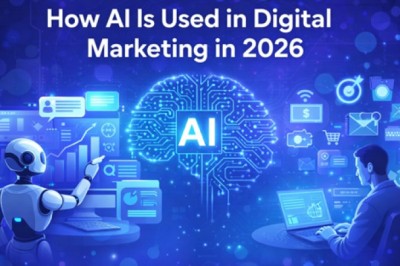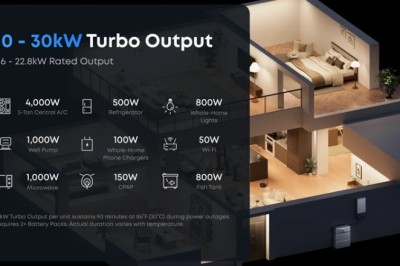views

In the ever-evolving landscape of digital marketing, Pay-Per-Click (PPC) advertising remains a powerful tool for businesses looking to drive targeted traffic and increase conversions. As we enter 2024, developing an effective PPC strategy is more crucial than ever. With search engines and social media platforms continually updating their algorithms and features, staying ahead requires a comprehensive and adaptive approach. This article will guide you through the essential steps to create a successful PPC campaign that adapts to the latest trends and technologies, ensuring your business stays ahead of the competition and effectively reaches your target audience.

Understanding the Basics of PPC Advertising
Before diving into the specifics, it's essential to understand what PPC advertising entails and how it fits into the broader digital marketing ecosystem. PPC is a model of internet marketing in which advertisers pay a fee each time one of their ads is clicked, essentially buying visits to their site rather than attempting to earn those visits organically. The most popular platforms for PPC include Google Ads, Bing Ads, and social media networks like Facebook, Instagram, and LinkedIn. Each platform has its unique features and benefits, catering to different types of businesses and marketing goals. For example, Google Ads offers robust search advertising options, while Facebook Ads excels in demographic and interest-based targeting.
Setting Clear Goals and Objectives
The foundation of any successful PPC campaign is setting clear, measurable goals. Without specific objectives, it’s challenging to gauge your campaign's success or identify areas for improvement. Whether you aim to increase brand awareness, generate leads, or drive sales, having well-defined goals will help guide your strategy and allocate your budget effectively. Start by defining your key performance indicators (KPIs) such as click-through rates (CTR), conversion rates, and return on ad spend (ROAS). These metrics will not only help you track your progress but also allow you to make data-driven decisions to optimize your campaigns. Additionally, consider setting both short-term and long-term goals to maintain focus and measure incremental success over time.

Conducting Thorough Keyword Research
Keywords are the cornerstone of PPC advertising, and conducting thorough keyword research is crucial to identify the terms and phrases your potential customers are using to search for products or services similar to yours. Utilize tools like Google Keyword Planner, SEMrush, and Ahrefs to find relevant keywords with high search volume and low competition. Additionally, consider long-tail keywords, which are more specific and often less expensive, to attract a more targeted audience. Long-tail keywords can be particularly effective for niche markets, allowing you to connect with users who have a higher intent to purchase. Regularly reviewing and updating your keyword list based on performance data can help you stay competitive and ensure your ads remain relevant.
Utilizing Advanced Targeting Options
One of the advantages of using versatile PPC services is the ability to target specific audiences based on various criteria. Platforms like Google Ads and Facebook Ads offer advanced targeting options, including demographic targeting, geographic targeting, and behavioral targeting. Utilize these options to reach your ideal customers more effectively. For example, you can target users based on their interests, online behaviors, or past interactions with your website. Implementing retargeting campaigns can also help re-engage users who have previously visited your site but didn’t convert. By using these advanced targeting features, you can ensure your ads are shown to the most relevant audiences, increasing the likelihood of conversion and maximizing your return on investment.

Implementing Conversion Tracking and Analytics
To measure the success of your PPC campaigns, it’s essential to implement conversion tracking and analytics. Tools like Google Analytics and Facebook Pixel allow you to track key actions on your website, such as purchases, form submissions, and sign-ups. By analyzing this data, you can gain valuable insights into your audience’s behavior and identify areas for improvement. Regularly monitoring your campaign performance will enable you to make informed adjustments to optimize your ads and maximize your return on investment (ROI). Additionally, setting up custom reports and dashboards can help you keep track of your most important metrics and quickly identify any trends or issues that need attention.
Adapting to Emerging Trends and Technologies
The digital marketing landscape is constantly evolving, with new trends and technologies emerging regularly. To stay ahead of the curve, it’s important to keep up with the latest developments in PPC advertising. For instance, voice search is becoming increasingly popular, and optimizing your campaigns for voice queries can give you a competitive edge. Additionally, artificial intelligence (AI) and machine learning are revolutionizing PPC management by automating tasks and providing deeper insights into campaign performance. Embrace these advancements to enhance your PPC strategy and achieve better results.
Building an effective PPC strategy in 2024 requires a comprehensive approach that combines clear objectives, thorough keyword research, compelling ad copy, advanced targeting, and continuous optimization. With these steps, you’ll be well-equipped to master PPC advertising and achieve your marketing goals in 2024. Embrace the power of PPC to elevate your digital marketing efforts and stay ahead of the competition.






















Comments
0 comment